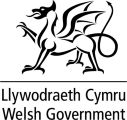Consultation on proposed registration requirements for all bird keepers in Great Britain
Overview
We are seeking your views on our plans to make it compulsory for all poultry[1] and other captive bird[2] keepers[3] to register their bird(s) with the Animal and Plant Health Agency (APHA).
It is currently mandatory for a person who is a keeper of 50 or more poultry at any single premises to register their birds on the Great Britain Poultry Register by providing specified information on the birds. The information on the poultry register is important in the prevention and control of notifiable avian disease outbreaks (such as Newcastle Disease and avian influenza). Avian influenza (also known as bird flu) is a highly contagious viral disease that affects both domestic and wild birds.
The information on the register is used to:
- communicate with keepers when there is a heightened risk of bird flu incursion and during bird flu and Newcastle disease outbreaks, on measures they need to take to protect the health of their birds, and to prevent disease spread.
- meet the disease control measures set out in domestic legislation [4] and the Notifiable Avian Disease Control Strategy for Great Britain, such as undertaking surveillance activities in any restricted zone following confirmation of disease outbreak.
[1]“Poultry” means all birds that are reared or kept in captivity for the production of meat or eggs for consumption, the production of other commercial products, for restocking supplies of game or for the purposes of any breeding programme for the production of these categories of birds.
[2] “Other captive birds” in England and Wales means any bird kept in captivity which is not poultry and includes a pet bird and any bird kept for shows, races, exhibitions, competitions, breeding or for sale; or
In Scotland “other captive bird” means any bird, other than poultry, kept in captivity including any bird kept for shows, races, exhibitions and competitions (such as ornamental birds and racing pigeons).
[3] “Keeper” means the person with day-to-day responsibility for poultry or other captive birds at any premises.
[4] The Avian Influenza and Influenza of Avian Origin in Mammals (England) (No. 2) Order 2006, as amended in England, the Avian Influenza and Influenza of Avian Origin in Mammals (Wales) (No. 2) Order 2006, as amended in Wales and Avian Influenza and Influenza of Avian Origin in Mammals (Scotland) Order 2006, as amended in Scotland.
Why your views matter
The purpose of this consultation is to seek views on the government’s proposals to require all keepers of poultry and other captive birds to register their birds. There are three options under consideration including a do-nothing option.
Having up to date information on the location of bird premises increases the effectiveness of activities carried out by government such as risk assessments, tracing investigations and sharing communications with keepers on how to protect their birds.
Mandatory annual updates to registration information for all keepers would improve the accuracy of data to assist in disease prevention and control, although it is noted that annual registration would not necessarily match the production cycle for all systems.
The proposed changes will amend the current poultry registration requirements for keepers with 50 and more poultry and extend this to all bird keepers. The consultation proposals take forward the recommendation from the 2018 Dame Glenys Stacey Review that was conducted for England and lessons identified from the 2021/2022 highly pathogenic avian influenza (HPAI) H5N1 (also known as bird flu) outbreak and previous HPAI outbreaks.
Whilst animal health policy is a devolved matter, the UK government, the Scottish government and the Welsh government have agreed to work together to ensure adequate information on all bird premises is captured across Great Britain. The specific amendments proposed in this consultation will have effect only in Great Britain (England, Scotland and Wales).
Your responses will be used to help refine proposals and inform policy decisions on how the UK government, Scottish Government and Welsh Government proceed with any subsequent legislative change.
Audiences
- Agricultural Landlords
- All Defra staff and ALBs
- Charities/Voluntary Organisations
- Coastal local authorities
- Consumer Groups
- Devolved Administrations
- Environmental Health Officers
- Families
- Farmers
- Food Business Operators
- Food Industry
- Government Agencies
- Government Departments
- Livestock show ground operators
- Local Authorities
- Local Authorities
- National Park Authorities
- Operators of animal gatherings
- Pet Interest Groups
- Pet Owners
- SME businesses
- Stakeholders
- Tenant Farmers
- Trade Unions
- Trading Standards Officers
- Veterinarians
- Vets
Interests
- Animal diseases
- Animals
- Circus animals
- Egg industry
- Meat Industry
- Non-native species
- Pets
- Poultry
- Poultry industry
- Protecting wildlife
- Wildlife management
- Zoos




Share
Share on Twitter Share on Facebook